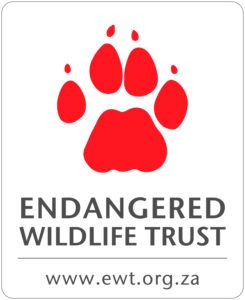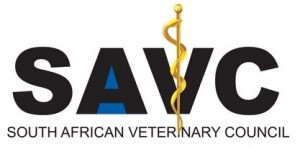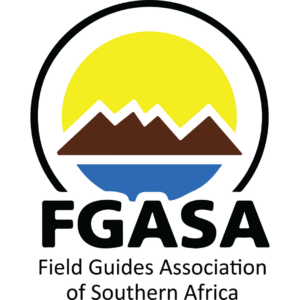African Wild Dog Behaviour

Because conservation is something we feel strongly about, COAPE will donate a portion of the course fee for every student enrolled to the EWT’s Carnivore Conservation Programme.

The African Lion Behaviour course is accredited as a Continual Professional Development course by the South African Veterinary Council.
SAVC CPD ACCREDITED: CPD points for SAVC accredited courses are only valid for qualified veterinarians and para-veterinary personnel in South Africa.

FGASA is an esteemed organisation that sets high standards for professionalism, education, and training in the tourism sector, with a particular focus on wildlife and nature experiences in Southern Africa. Students who have successfully completed the COAPE African Lion Behaviour
This course is for students who want to learn more about wildlife and wildlife conservation, students with no prior experience in this field may enrol for this course.
A certificate for anyone in the Field Guiding Industry or individuals who are interested in learning more about the fascinating African Wild Dog. As well as students of zoology, wildlife conservation and other professionals who want to understand more about African Wild Dog conservation and behaviour.
This course will enable you to understand the subtler aspects of African Wild Dog behaviour and understand some of the reasons why this incredibly social carnivore has been so heavily persecuted over the last century. The knowledge gained can greatly enhance your understanding and pleasure when viewing this species in the wild.

African Wild Dog Behaviour
WHAT THE STUDENT WILL LEARN
Unit 1:
In this first unit we develop an understanding of the evolution of carnivores as well as the morphology of canids and the wild dog. The student will be able to explain the scientific classification of wild dog, gray wolf and domestic dog and compare and contrast the individual differences. We will look at differences within the family of Canidae and understand, with examples, the morphological differences of canids and the wild dog in:
- Body structure
- Skull and dentition
- Appearance
Unit 2:
We look closely at the pack structure of the Wild Dog, gaining an understanding of their social behaviour as well as breeding and reproductive behaviour. The student will compare differences within the social structure of a large canid pack and a small canid pack. Examples of the organisation of the pack will consider:
- Care of a litter
- Dispersal of the litter
- Pack bonding
- Conflict resolution
- Life span
- Effects of range and habitat
Unit 3:
This unit looks at the hunting behaviour and methods of the Wild Dog. Long considered by many people as a brutal style of hunting, research has shown the adaptability of co-operative hunting, the prey preferences of the Wild Dog, as well the communication systems used in co-operative hunting.
Unit 4:
Here we reveal to the student a deeper understanding of the fragile status of the Wild Dog in Africa and the need for its conservation. Conservation policies and methods of conservation with be discussed, as well as the distribution of the Wild Dog throughout Africa. We will examine the reasons for the decline of the Wild Dog population through human persecution and natural predation, as well as some of the methods to aid Wild Dog conservation. The student will be introduced to the Wild Dog Metapopulation Plan and evaluate the geographical and ecological features of a metapopulation reserve.
Unit 5:
The student will go ‘behind the scenes’ of Wild Dog research and gain an understanding of how to plan a study of Wild Dogs. We will examine current methods of monitoring Wild Dogs with examples of surveying and assessing their distribution. There are limiting factors on the numbers of Wild Dogs in terms of distribution, ecology and predation and that is why it is important to track and monitor them. We will explore the current technology available for tracking them as well as monitoring disease within a pack of Wild Dogs
Unit 6:
This final unit goes into finer detail and looks at the life of one Wild Dog pack and a ten-year research study conducted on them. The students will be able to explain in detail the essential aspects of a management programme as well as the key factors for consideration when planning a metapopulation and Wild Dog conservation policies.
WHAT CAN YOU DO WITH AFRICAN WILD DOG BEHAVIOUR?
- The African Wild Dog Behaviour Course is an excellent interest course for any BSc student or any student who is going into the guiding industry.
- The successful completion of African Wild Dog Behaviour qualifies you to enrol for the COAPE Diploma in Animal Behaviour.
COURSE INFORMATION
Tutor & Marker:
Wendy Collinson-Jonker
Course Type:
Correspondence online. Students can enrol at any time.
Course Format:
Each Unit of the course notes is e-mailed out to students as a separate e-book.
The coursework for this course is conveniently completed online. We also supply you with a specially designed Assignment Workbook to assist you in completing the components of the coursework, so you can use your own computer and preferred word processing software. You will then submit these completed assignments to COAPE International via the internet, they are then marked and returned back to you the same way.
Course Duration:
The duration of the course is 12 months, but can be completed in a shorter time frame. The maximum time allowed for a student to complete the course is 14 months.
Students can enrol for this course any time.
Abilities Required for This Course:
- Students must be computer literate, have the use of a computer with internet access and be able to operate basic programs such as Microsoft Word.
- A good command of the English language is essential.

